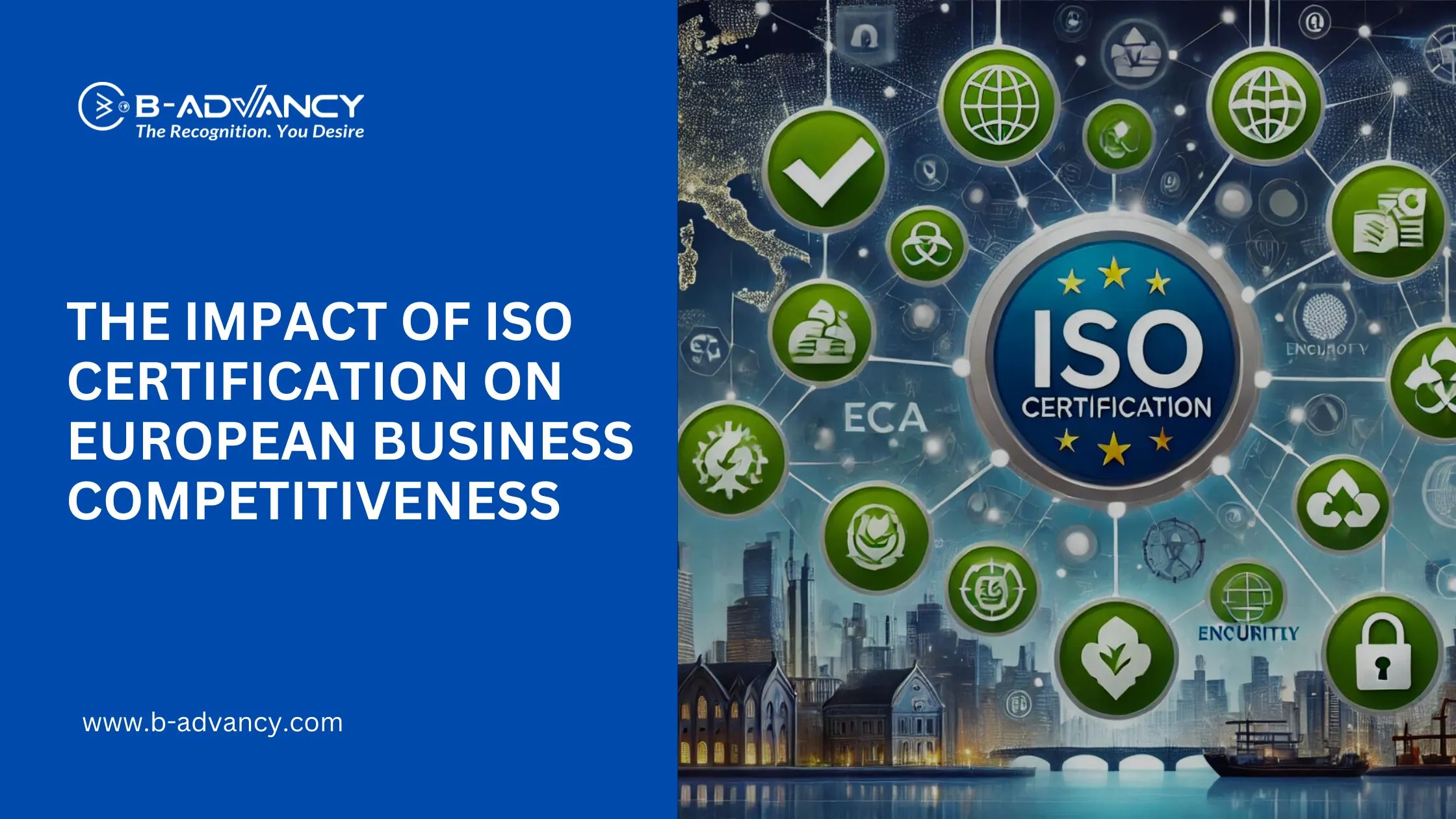
In the competitive landscape of today’s global market, businesses in Europe face immense pressure to stand out, meet international standards, and ensure consistent quality. ISO (International Organization for Standardization) certifications have become essential for enhancing credibility, meeting regulatory requirements, and fostering trust among consumers. This blog delves into the impact of ISO certification on the competitiveness of European businesses, examining how compliance with these standards can contribute to long-term success.
ISO standards are renowned for their emphasis on quality, consistency, and efficiency across various industries. Standards such as ISO 9001 (Quality Management Systems) help businesses streamline processes, reduce wastage, and minimize errors, ensuring that products and services meet consistent quality standards. For European businesses, achieving this level of operational efficiency is essential for maintaining a competitive edge. With enhanced processes, companies can produce higher-quality goods and services while reducing operational costs, allowing them to compete more effectively in both domestic and international markets.
ISO certifications are recognized worldwide and serve as a passport for European businesses seeking to enter global markets. Standards such as ISO 14001 (Environmental Management Systems) and ISO 50001 (Energy Management Systems) are crucial in aligning with regulatory requirements and environmental norms globally. With the European Union being a significant advocate for environmental responsibility, companies that adhere to these standards are better positioned to export their products and services, leveraging their commitment to sustainability and quality to attract international clients and partners.
Consumers today are increasingly informed and discerning, prioritizing companies that demonstrate responsibility, quality, and transparency. ISO certifications communicate that a business adheres to international standards, instilling confidence in customers. Certifications like ISO 27001 (Information Security Management Systems) and ISO 45001 (Occupational Health and Safety) showcase a company’s commitment to data security and employee well-being, respectively. These certifications are particularly relevant in Europe, where data privacy regulations (such as GDPR) and employee safety are taken seriously. By meeting these standards, businesses can enhance customer trust, leading to higher levels of customer satisfaction and loyalty.
ISO standards are frequently updated to reflect advancements in technology and industry best practices. For instance, ISO 56002 focuses on innovation management, guiding companies in fostering a culture of continuous improvement. By adopting these standards, European businesses can remain adaptable, continuously improving their processes, products, and services to meet changing market demands. This adaptability is essential for European businesses facing an evolving global landscape, positioning them as innovative and forward-thinking leaders within their sectors.
ISO certification doesn’t just affect a single business; it also positively impacts its entire supply chain. ISO 28000 (Supply Chain Security Management) and other supply chain standards enable companies to create a secure and reliable supply chain, which is essential for business resilience. For European businesses, maintaining solid supply chain relationships is critical, especially in times of economic uncertainty or geopolitical disruptions. By certifying their processes, companies demonstrate reliability and commitment to quality, fostering stronger relationships with suppliers and partners who are also ISO-certified, ensuring a consistent and reliable network.
European regulations are rigorous, particularly regarding environmental sustainability, data privacy, and workplace safety. ISO standards are often aligned with or exceed these regulatory requirements, helping businesses in Europe to stay compliant. For example, ISO 50001 certification can support compliance with the EU’s Energy Efficiency Directive, while ISO 14001 certification aligns with European environmental legislation. By maintaining these standards, businesses avoid costly penalties, operate more sustainably, and contribute positively to Europe’s regulatory landscape.
ISO standards emphasize the importance of employee involvement in continuous improvement. Standards like ISO 45001 for occupational health and safety promote a safer workplace, which boosts employee morale and reduces turnover rates. For European businesses, creating a safe, engaged, and motivated workforce is an asset that contributes to productivity and innovation. Engaged employees are more likely to take pride in their work, contributing to a stronger reputation and increased productivity, both of which play a crucial role in enhancing competitiveness.
ISO certifications that focus on sustainability and environmental responsibility, such as ISO 14001 and ISO 26000 (Social Responsibility), are particularly relevant for European businesses operating within the EU’s green regulatory framework. Companies that prioritize sustainable practices not only contribute to environmental goals but also align with consumer expectations for ethical practices. This alignment enhances their market reputation, making them more attractive to environmentally conscious consumers and investors, which is especially important in Europe’s competitive marketplace.
ISO certification offers a strategic advantage for European businesses, enhancing their quality, efficiency, and reputation in the market. By adhering to ISO standards, companies can reduce risks, improve customer satisfaction, and adapt more effectively to market demands. For European businesses aiming to remain competitive on a global scale, ISO certification is more than a compliance requirement—it is a commitment to excellence that paves the way for long-term success in an increasingly globalized and regulated market.